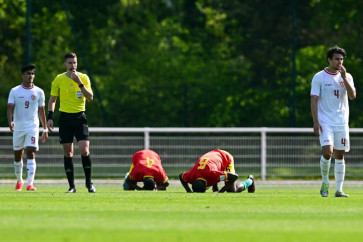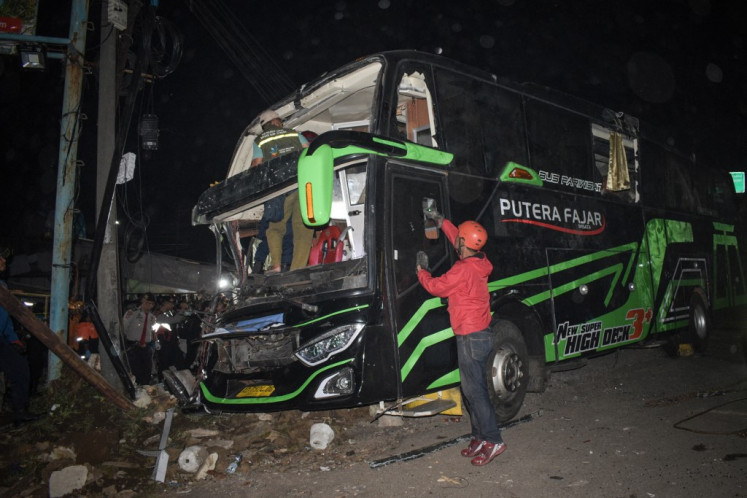40-year old educational crisis is swallowing Taiwan's next generation
As a developing country â one that pulled itself up by its agriculture and light industries â Taiwan has been gradually focusing more and more on its education; thinking correctly that it can progress into a well-developed nation with a generation that enjoys a better education than the one before
Change Size

A
s a developing country ' one that pulled itself up by its agriculture and light industries ' Taiwan has been gradually focusing more and more on its education; thinking correctly that it can progress into a well-developed nation with a generation that enjoys a better education than the one before.
In the 1970s, private universities arrived, hoping to open another door to prospective learners that were stripped of the opportunity due to Taiwan's limited budget for education. But who knew that the problematic bud of private education would be blooming and throttling the nation's future over the next 40 years.
It is now 2013. Around three quarters of college students are enrolled in private institutes in Taiwan.
While many private elementary schools and middle schools have succeeded in boosting the academic performance of their students, many private universities have gained a bad name throughout these 40 years with entrants able to pay tuition in exchange for a college degree. Many of the private institutes were established by industries with profit-driven motives, a notorious trend that the government somehow tolerated.
The outcome has only given the nation new batches of uncompetitive students.
It would not be exaggerating to dub many of these private colleges 'for-profit schools.' The government egged them on when it lowered the minimum admission scores from the original 5 per cent to 3 in 2009, after many industry-powered schools complained that they were not receiving enough students.
While the number of private colleges expanded, the birth rate dropped steadily, with many Taiwanese couples refusing to raise children or wishing for smaller families. The phenomenon would soon have schools grappling to admit enough students to stay open. The decrease in birth rates, the lack of students attending classes and lack of professors also proved that many institutes were unable to continue providing post-secondary education, prompting the Ministry of the Interior (MOI) and the Ministry of Education to encourage the unfit schools to close down.
Public and private college admittance rates topped 96 per cent in the past decade, and yet the statistics continue to be mind-boggling. The top score of the nation's college entrance exam is 500 points, yet students have been admitted into private colleges with pathetic 10-point scores ' that's how desperate the schools have become, grabbing onto students without ensuring the quality of education provided.
Instead of focusing on how to improve the essential educational factors, schools slated to be shut down by the government turned to shortcuts to lessen the chance of losing their tuition-based income when they fell short of the government's minimum student numbers. The schools then either changed their names, or those of the school departments, and also bought ample advertisement space claiming that the school was 'fun, creative and fashionable' to attract more students.
The diverse variety of courses opened to the students would undoubtedly shift the focus from the 'good scores, good school and good career' mentality, so deeply branded into the minds of the education-driven Chinese, to the cultivating of different professional specialities. But the quality of such strategies are, in turn, doubtful.
The curriculum and the teaching quality of the professors were, unsurprisingly, the least of the private schools' concerns, as many schools had only altered the names of the courses and not the content.
The MOI recently proposed a policy to permit private school boards that sell their land for business use to recoup 60 to 80 per cent of the commercial property value. The suggestion was blasted by a local teacher's group as simply an encouragement for profiteering ' a reasonable criticism that raises more questions about the government's tolerance of such schools.
Without striking at the roots of the education problem and without investigating the schools' backgrounds and educational motives, the school boards are instead granted an easy way out ' and may be pocketing hefty amounts of money in the process.
With the already meager academic standards of these private colleges, the majority of Taiwan's future generations may have the semblance of being benefited with secondary education. Yet this may be nothing more than a hindrance disguised as a boon.
The complaints about Taiwan's receding competitiveness are a lament already worn thin by the older generation, who had given the island its once gleaming title of one of the Four Asian Tigers. The phenomenon partially stemmed from the comforts provided by the hardworking parents, but the truth is, our education system is slowly chipping away at this much needed trait.









